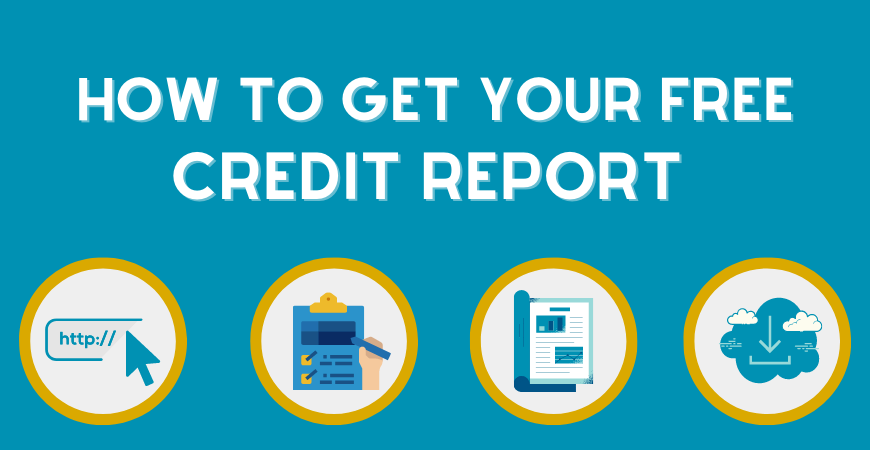
My credit card provider, like most providers, gives me access to my updated FICO Score. However, it doesn’t give me much information past simply my score and utilization ratio. If you seem to be in the same situation, I have a solution for you!
How To Get Your Free Credit Report
We are all entitled to one FREE annual credit report from each of the three major credit bureaus. The three credit bureaus are Experian, Equifax, and TransUnion. These free credit reports can be easily attained online at each of the bureaus' websites. You simply go to any of the three sites, enter your personal information and request a credit report! It is very important to download your credit report, in most cases, they are not automatically saved. It is also recommended that you pick a different credit bureau every four months, in order to space out your free credit reports and be able to stay up to date with your credit score throughout the year.
Now that you know how to attain your free credit reports, it is important that you understand how to interpret the information on it. I recently requested my free credit report from Experian. My report provided a lot of information on my credit, below I will break down all of the information I received and what it means.
Credit Accounts
For most credit reports, what you will initially see is your credit accounts. Your credit accounts may be divided into 4 different categories; Revolving Accounts, Mortgage Accounts, Installment Accounts, and Other Accounts. Revolving Accounts are usually those that include a credit limit and require a monthly payment, such as standard credit cards and store credit cards. Mortgage accounts are real estate loans that require payments on a monthly basis until the loan is paid off. Installment accounts are loans that require a monthly payment until the loan is paid off, such as student loans or auto loans. Other accounts are classified as accounts that do not fall within the other three categories, such as child support obligations or rental agreements.
When looking at the account details for all of your credit accounts, it is important to make sure everything is accurate. The status of your account should be listed as either open or closed, so make sure that is up to date. In addition, you will also be able to view your remaining balance on your accounts and any missed payments. Make sure this information matches your personal records. Lastly, double-check that information such as the age of account and payment history is accurate with your personal records. If you find information on your credit report that you believe is incomplete or inaccurate, you are allowed to file a dispute. When you initially retrieve your credit report, there should be a “File a Dispute” option towards the bottom of your screen.
Credit Inquiries
Another piece of information that you will find on your credit report is your credit inquiries. A credit inquiry is a request for your credit history. There are two types of credit inquiries; Soft Inquiries and Hard Inquiries. Soft Inquiries do not impact your credit score. Examples of these types of inquiries are companies making promotional offers of credit or your own requests to check your credit file. Hard Inquiries do impact your credit score and remain on your file for up to 2 years. An inquiry made by a company with whom you have applied for a loan or credit would count as a hard inquiry. Again, simply make sure you recognize your hard and soft inquiries on your credit report, if any do not seem familiar or accurate you can file a dispute.
Public Records and Collections
You will also find a Public Records section. This section includes public records obtained from local, state, and federal courts. Within this section, there will also be information on any bankruptcies you have ever declared, bankruptcies negatively affect your credit score. Lastly, you will find a Collections section. Collections are accounts with outstanding debt that have been placed by a creditor with a collection agency. Collections have a negative impact on your credit score and stay on your credit report for up to 7 years. As said before, if any of this information is inaccurate and does not match your personal records, you can file a claim.
The Importance Of Your Credit Reports
Your credit score is vital for your finances. Your score will more than likely dictate whether or not you are approved for loans or other credit accounts and will play a role in determining the interest rates you pay. It is important to request your annual free credit report, in order to understand what is positively affecting and what is negatively affecting your credit score.
Author:
 Melissa Rodriguez
Melissa Rodriguez
Bobcat Financial Coach
Melissa is a Bobcat Financial Coach alumna from University of California, Merced. Read more about her here!








